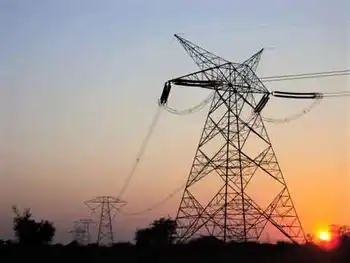Kentucky city conducting 'Kilowatt Crackdown'
By Associated Press
Electrical Testing & Commissioning of Power Systems
Our customized live online or in‑person group training can be delivered to your staff at your location.

- Live Online
- 12 hours Instructor-led
- Group Training Available
The businesses and government agencies are taking part in Louisville's first "Kilowatt Crackdown," an 18-month energy-efficiency challenge that began last year and wraps up in December with the goal of saving money and helping the environment through competition.
The efforts are being tracked using tools from the U.S. Environmental Protection Agency.
"If you can reduce energy consumption in your building, you are going to save in the operating expenses of your company," said Chris Cieminski, general manager of the 35-story Aegon Center and chairman of the Louisville Energy Alliance, the nonprofit group overseeing the Kilowatt Crackdown. "Long term, if we reduce our overall consumption, it means LG&E (Louisville Gas & Electric) doesn't have to build another power plant."
Louisville joins Portland, Ore., and Seattle — two cities noted for their environmental initiatives — in offering the challenge through the EPA's Energy Star program, EPA manager Leslie Cook told The Courier-Journal.
The idea germinated two years ago, Cieminski said, when Louisville Mayor Jerry Abramson approached business leaders about the initiative and put them in touch with the EPA. Participants in the Kilowatt Crackdown signed up last year and have agreed to track their energy usage and document their conservation measures this year.
Winners will be announced in 2010. Cieminski said the alliance intends to offer another challenge that year.
The Aegon Center — which already has been certified as an Energy Star building, meaning it meets certain federal standards for energy efficiency — has recently installed several new types of energy-efficient lighting, including some in its elevators, Cieminski said.
Multiple participants in the challenge say they are taking it seriously.
"We are absolutely going to give it our best," said David Noltemeyer, a facilities and real-estate manager for nearby Humana, which entered three of its Louisville buildings in this year's challenge.
As one of its initiatives, Humana upgraded the elevators in its Waterside Building so that the motors shut down when not in a high traffic period, Noltemeyer said.
Kroger entered 10 of its grocery stores in the competition, said Jason Conn, an engineer with Kroger and member of the alliance board.
Kroger initiatives include energy audits where crews check the stores at night to ensure cooler doors are closed, computer screens are off and other equipment is operating efficiently, he said.
Conn said Kroger also is trying out energy-sipping LED lighting in some refrigerated and frozen-food cases.
Jefferson County Public Schools entered dozens of buildings, the most of any organization, in an effort to save on the $18 million it spends annually on utility bills.
Several facilities are getting new heating and air conditioning, and all will be subject to improved energy management, said Mike Mulheirn, director of facilities for the district.
"If we could reduce our energy by 3 percent, that would save us half a million bucks," he said.











